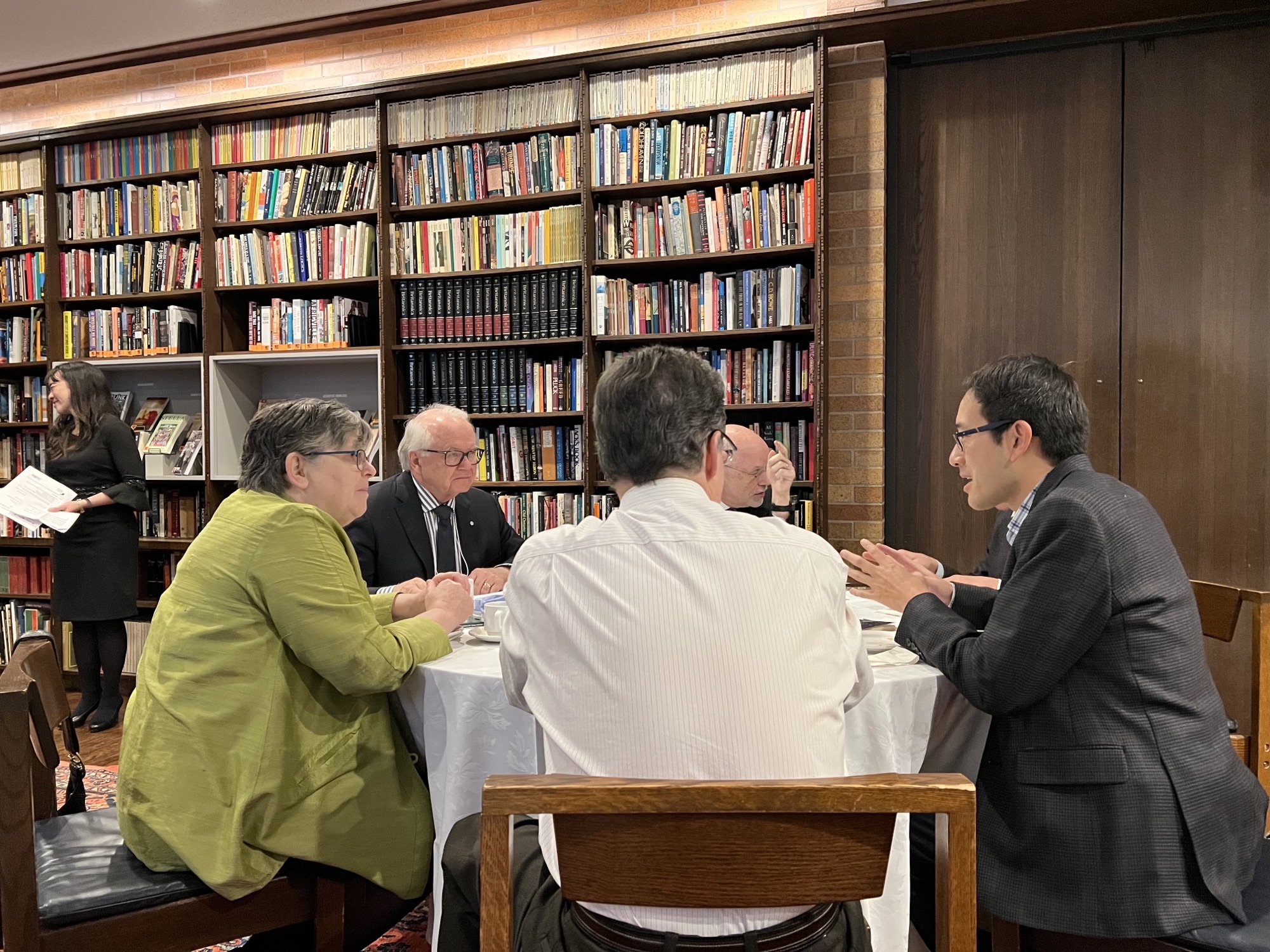Allison McGeer (first from left), Lorne Tyrrell (second from left) and other research leaders at a breakfast roundtable.
November 25, 2022
By Betty Zou
On November 16, the University of Toronto’s Emerging and Pandemic Infections Consortium (EPIC) co-hosted a breakfast roundtable honouring Lorne Tyrrell, winner of the 2021 Henry G. Friesen International Prize in Health Research.
Tyrrell, a distinguished professor at the University of Alberta and the founder and director of the Li Ka Shing Institute of Virology, was recognized for his seminal work leading to the development of the first oral antiviral drug for hepatitis B and his contributions to Canada’s COVID-19 Vaccine Task Force.
The event took place at Massey College and was jointly hosted by EPIC, the University of Toronto and Friends of CIHR, an organization dedicated to promoting health research and health research funding and to supporting the goals and values of the Canadian Institutes of Health Research.
The roundtable discussion focused on the future of infectious diseases research and innovation in Canada and what lessons could be learned from the COVID-19 pandemic as we move forward. Leading infectious diseases researchers at U of T and its hospital partners, all of whom are members of EPIC, attended the event along with trainees and senior leadership from U of T and our hospital partners. While a number of different perspectives were shared, several common themes emerged.
A key concern that was voiced by many at the roundtable was the need for sustained, long-term funding for infectious diseases research. Outbreaks like the first SARS outbreak in 2003 and the COVID-19 pandemic led to a surge in research investments. However as outbreaks end and recede from our memory, historically, the funds and supports have dried up quickly. While the rapid disbursement of research funds was critical to address immediate questions around the pandemic, these short-term investments are not enough to support the long-term development of scientists and innovative ideas that will allow a quick and effective response to future outbreaks. As one attendee said, “You can’t recruit new students on a one-year grant, and you can’t train an immunologist overnight.”
Infectious disease research is complex, spanning from molecular studies to public policy. The value of and need for collaboration to advance this work were also highlighted throughout the discussion. Tyrrell noted that while academic researchers are good at identifying new substances that could help prevent or treat disease, turning those substances into products is often a hurdle. Taking discoveries through the bioinnovation pipeline from lab to market requires partnerships across sectors and disciplines. For example, biomedical engineers working with fundamental and clinical researchers to develop new devices and products will need to work with industry to scale up manufacturing and engage with public health and local communities to create strategies for implementation and uptake. Having networks like EPIC to facilitate and support these kinds of collaborations will help accelerate ideas from concept to reality.
Finally, the COVID-19 pandemic underscored the importance of knowledge mobilization and public engagement. The discussions highlighted that groups like the COVID-19 Vaccine Task Force and the Ontario COVID-19 Science Advisory Table provided a direct line between scientists and policymakers so that the most accurate and relevant information could be shared in real-time to inform evidence-based decision-making. These groups also gave a public face to science and became a trusted source of information for the public. At the same time, many clinicians and scientists engaged directly with the public through media interviews and their personal social media accounts. These open lines of communication must be maintained and properly supported to ensure we can continue to build trust and combat misinformation. Doing so will put us in a stronger position to respond to future infectious threats.


